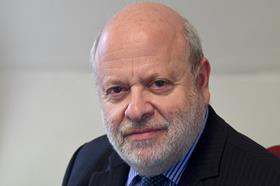There has been much coverage of the enormous salaries now paid to newly qualified solicitors in City of London firms - £180,000 at one, a mere £150,000 at another. By comparison – and a lot of fun can be had in comparing salaries - the prime minister earns £91,346 for being an MP, and £80,807 on top for being prime minister. I don’t dare to mention my own earnings, because – if pay equals success – I am a humiliating failure.

Payments of enormous size do not come without context. A newly qualified lawyer is paid so much because others further up the hierarchy are paid even more. The FT disclosed some of these payments in an article about how US firms in London have driven up rates. A select group of partners at top US law firms in London, working mainly in private equity, now earn over £15 million a year, while average partner profits are around £4 million.
There is, of course, more context even than that. In the US, top firms now charge more than $2,000 per hour (over £1,500). These figures have crossed the Atlantic, to support salaries here.
And lawyers are not paid these figures just to drop into the office for a quick look at their files before going home. The FT article highlights the punishing hours expected of trainees and junior lawyers: over 12 hours a day in some firms, over 11 hours in others. Billable hours are close to 2,000 hours a year at top firms, and at one firm lawyers typically finished work after 10 o’clock at night. Firm revenues are in the billions.
We have a legal profession of two extremes. At the one end, we have legal aid lawyers with unremunerative rates unchanged for years, and law firms barely able to make ends meet. At the other, we have the law firms described here. And of course they are servicing a different clientele: those unable to pay for a lawyer at one end, and those for whom, as the FT says, fees of over £1,000 an hour are merely a footnote to a transaction.
I don’t think we should merely shrug our shoulders and say ‘That’s free markets for you’, or an equivalent.
I have written before about the evidence from criminal legal aid solicitors, quoted in the recent court judgment in favour of the Law Society against a previous lord chancellor’s irrational decision not to grant solicitors the full percentage increase in criminal legal aid fees recommended by an independent review.
For instance, because of the legal aid fixed fee structure, two-thirds of a fee could be disallowed, so absorbed by an already struggling legal aid lawyer – in that case, the firm had to reduce office space by 50% in order to survive. Another reported a nervous breakdown, anti-depressants and sleeping pills. Yet another worked many more than the 12 hours of City lawyers, but for a pittance and sometimes not paid (if a conflict of interest arose, for instance).
We can all agree that that is wrong: both the fees paid for professional work, and the working conditions of the professionals.
But is the other end of the profession not also wrong? Yes, the pay is beyond the dreams of most lawyers. But our profession should not tolerate working hours for young people of over 11 or 12 hours per day, however well-paid they are. There are mental health consequences to such hours, and our profession should insist that a good lawyer is a well-rounded person who has a life and interests outside the law (and the time in which to develop them).
And, just as it is not good that the rates paid to legal aid lawyers are so ridiculously low, it is not good for the overall reputation of the legal profession that legal services at the top end are so expensive. London is known as a very costly venue to resolve legal disputes. This feeds into one of our principal campaigns at the moment, to ensure that England and Wales remains a jurisdiction of choice internationally. One of the factors which mitigates against the success of that campaign is the cost of doing legal business in London.
It sounds cool to have high salaries, high billable hours and high charging rates. But there is fall-out. The low rates at the legal aid end can be remedied by more cash (although that seems unlikely for the foreseeable future). Yet the high rates at the City end will not be remedied for so long as higher salaries, higher billable hours and higher charging rates are seen as a sign of strength and success.
I believe higher rates of everything pose their own problems. A lawyer is a human being with needs outside work. And a legal system can price itself out of the market.
Jonathan Goldsmith is Law Society Council member for EU & International, chair of the Law Society’s Policy & Regulatory Affairs Committee and a member of its board. All views expressed are personal and are not made in his capacity as a Law Society Council member, nor on behalf of the Law Society
































5 Readers' comments